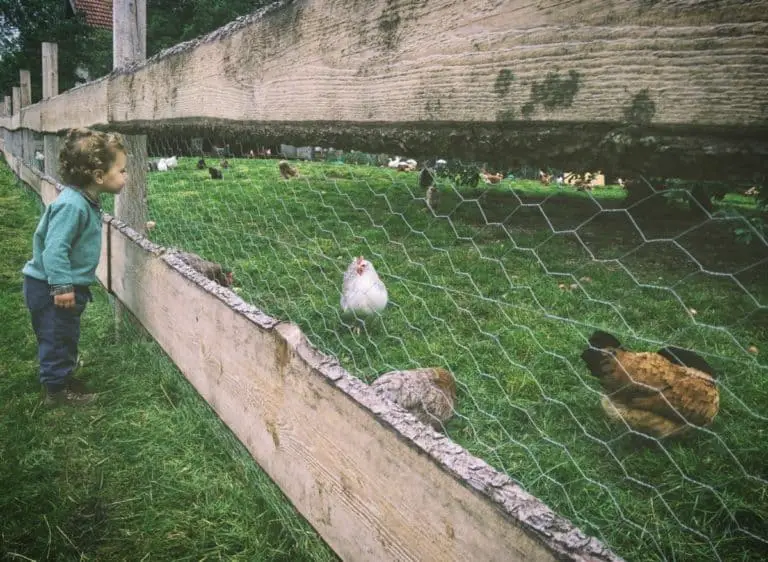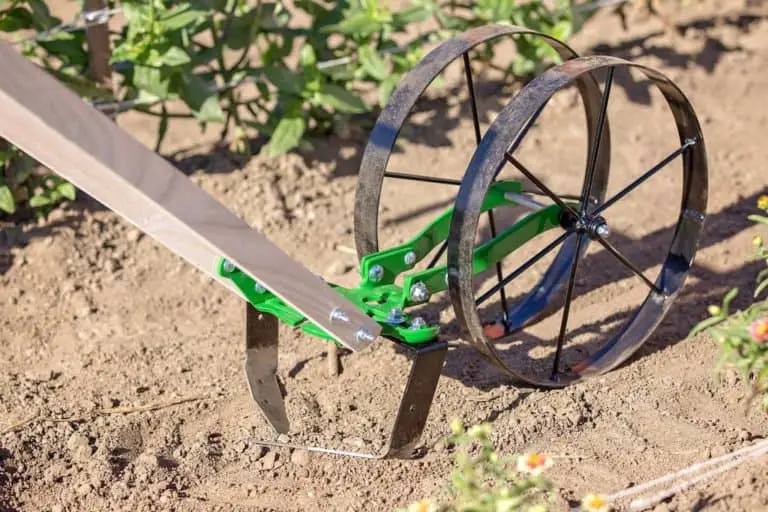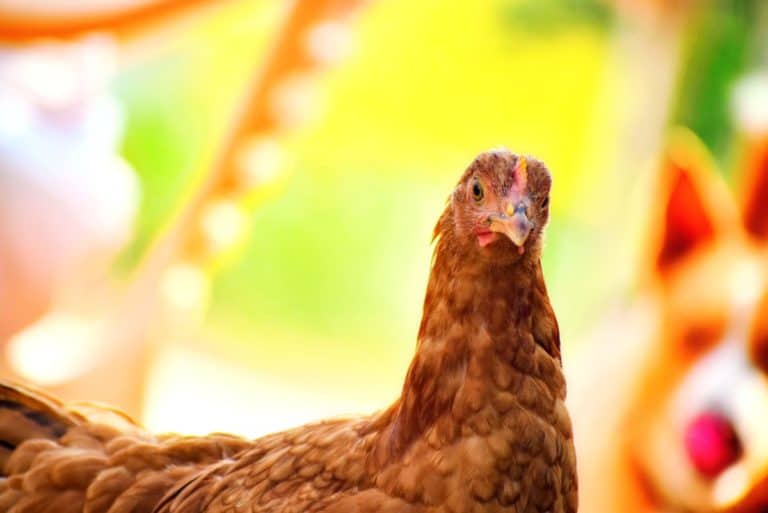
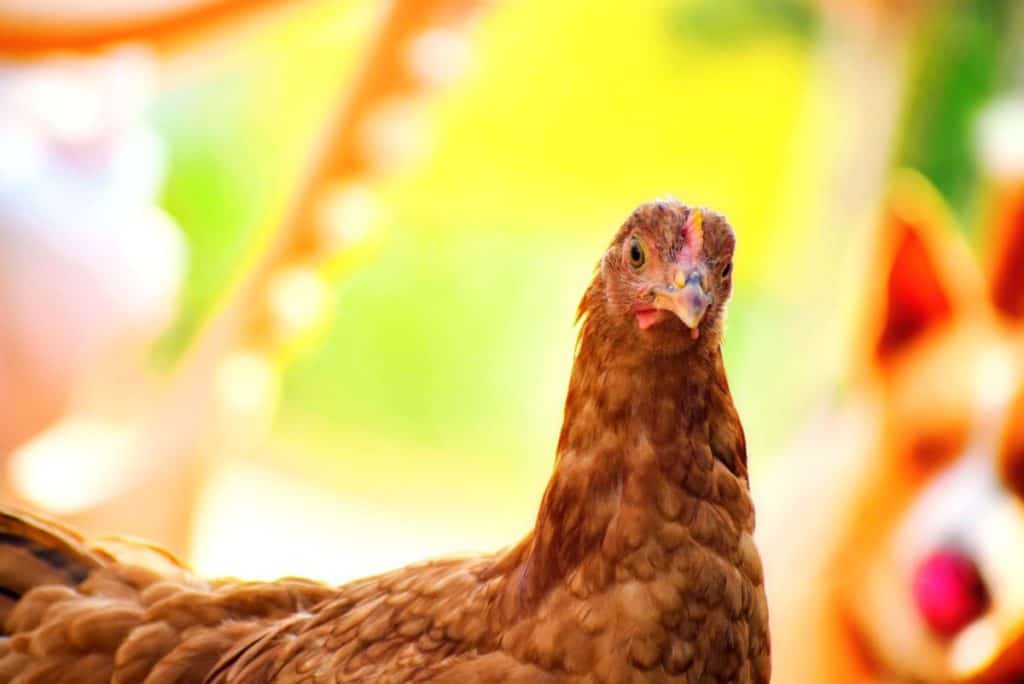
Whether you’re raising chickens in a small backyard or spread over a large acreage, there are some things you need to know before you start your journey. Chickens are relatively easy to keep, but there are a few challenges you will need to overcome.
No matter what breed you choose, chickens must be kept in an area where they have access to clean water, proper nutrition, and a dry place to sleep. They also need an environment that is tidy enough to discourage disease and one that is secure from predators.
Those are the fundamentals needed for having a backyard flock. There are many other factors that can dramatically enhance your experience, and make your chickens more productive. Let’s take a look at a few other things you need to know.
FEED GUIDELINES:
| Chick Starter | 0 to 8 Weeks |
| Starter/Grower | 8 to 14 Weeks |
| Finisher | 15 to 18 Weeks |
| Layer Feed | 18+ Weeks |
The Chicken Experience
There are many benefits to having chickens on your property. In addition to fresh eggs, is the benefit of insect control. Chickens love to eat bugs. Chickens also produce one of the best fertilizers known to man.
As a “seasoned homesteader” I’ve raised chickens on and off for around 40 years and have found them to be very easy to keep. They demand very little of you but will reward you with delicious fresh eggs, with a little input from you.
Another reason for keeping chickens is the fresh meat they can provide. I realize many are not interested in butchering their own chickens, but if you are willing to do that, you can provide your family with healthy, antibiotic-free meat.

Your chickens will need adequate space allowed for them. How much space depends on how many birds you have. Many say that around 5 square feet per bird is adequate space inside a chicken coop. I’m sure that is technically correct but have found that if you can give them more room you will have fewer problems.
If chickens are confined in too small an area they will begin to pick at each other. This is common because they are constantly establishing a “pecking order”. But, if they are confined in a space that is too small for them, their pecking can become more vicious and can result in more than just a bruised ego. They can actually hurt one another and in extreme cases, deaths can occur.
Also, chickens are a “flocking” animal. That means they desire companionship. It would be unwise to buy a single chicken. They really like to have other chickens around because of their innate flocking instinct. For that reason, you should buy two or three chickens at the very least.
Let’s go into greater detail about what you should expect from your chickens and what they will expect from you.
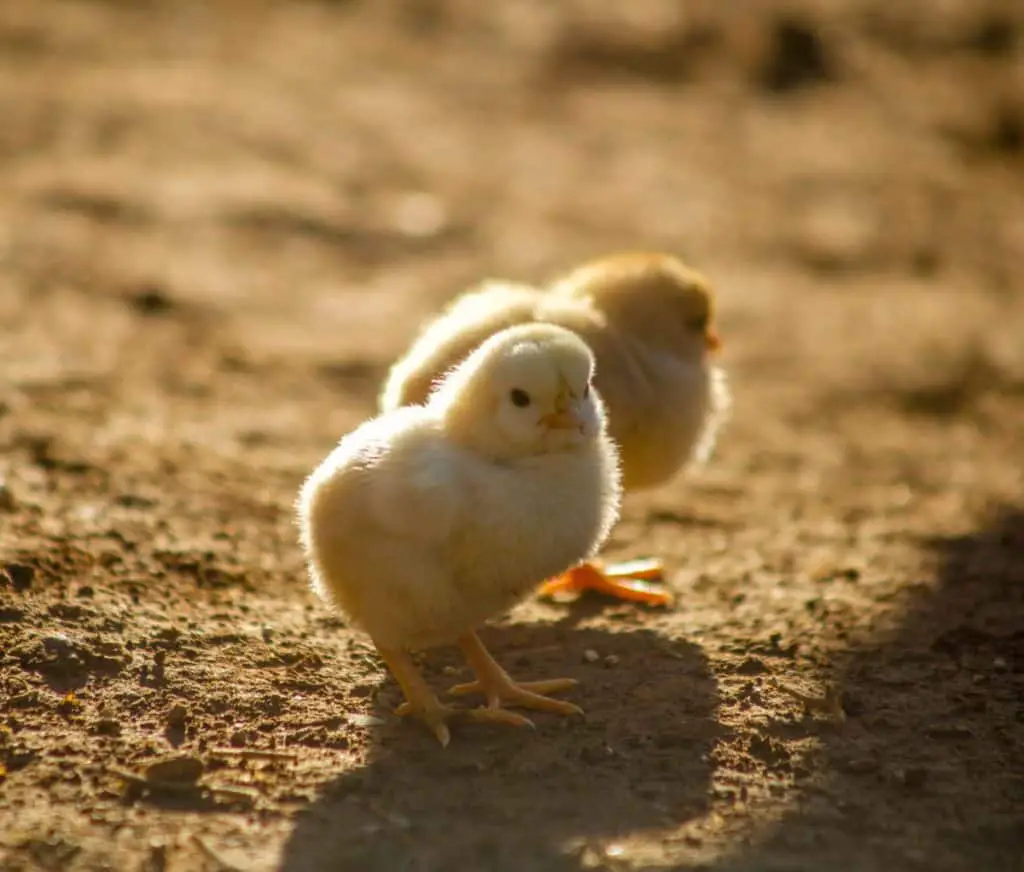
The Coop And Run
Whether you are going to free-range your chickens or keep them confined they will need a dry area to call their own. This area will be their coop. As I mentioned before, the coop must be large enough to provide enough room for the number of chickens you have. Chickens that are packed in an area too small can become bored. A bored chicken can be a mischievous chicken.
Just to look at a chicken you wouldn’t think that they would present a danger to each other, but chickens can be pretty vicious. Having enough elbow room in your coop will go a long way in discouraging this behavior. For that reason, I’m going to suggest that instead of looking at the five square feet per chicken rule you decide to go as large as you possibly can afford to.
Your coop will need a place for the chickens to sleep, or “roost”. They prefer sleeping on an elevated level. This is called a roost. When they are very young, they don’t always take to the roost, but after a while, they will become accustomed to it. They will also become accustomed to going to bed very early and in the exact same place every time.
Your hens will also need a place to lay their eggs. They prefer to lay in seclusion. You’ll need to provide a secluded nesting box that has nesting material in it such as hay or wood shavings.
The eggs will become soiled from time to time. For that reason, whether you are eating them or selling them, you’ll need to clean them up before use. A few years ago I bought a “roll-away nest box“. This has been one of the best things I’ve done in a long time for my chickens.
A roll-away nest box allows the egg to roll down an incline into a tray before the chicken has a chance to poop on it. I very seldom have to wash even one of my eggs now. They are just so clean! Washing poop covered eggs can be time-consuming as well as just yucky. A roll away nest box will all but eliminate that.
Each chicken does not need its own box. They will share. Rule of thumb is one box for about every 4 chickens. Here are a few examples of a Roll Away Nest Box at Amazon.
In an earlier paragraph, I mentioned “The Run”. The run is an area outside the coop (if you allow them to get out of the coop) where they can scratch around for bugs, worms, and seeds. Letting them have this larger area to scavenge on will dramatically cut down on fighting and pecking, and can also save you money on feed.
The school of thought as to space required in a run would be around 15 square feet per chicken. But again, if you have space, give them all the room possible. The more room they have to roam around, the fewer problems you will have from infighting.
All this will need to be set up before your chickens come home. Make sure you have a good dry home for them before you purchase them. Here’s an article you might like that goes into greater detail about the chicken “coop and run”.
What Age Chicken Should I Buy?
First of all, let’s look at some Chicken Terminology:
- Hatching Eggs – Fertilized eggs that can be incubated and hatched
- Chicks – Typically a bird less than 6 months old
- Pullet – A female chicken 4 to 6 months old
- Cockerel – A male chicken 4 to 6 months old
- Hen – A female chicken that has begun to lay
- Rooster – A mature male chicken
If you choose to buy baby chicks or to hatch your own chicks from hatching eggs in an incubator, you have just added a lot of time and effort to your chicken ownership experience. If you have young children, watching eggs hatch is a great thing for them to see, so I don’t discourage that at all. But, just understand that once they are hatched, which takes around 21 days, they have to be placed in a brooder.
That brooder has to be kept at a certain temperature to keep the chicks viable. I have hatched out several sets of chicks, and I have bought day-old chicks from hatcheries online, so I can tell you for sure that it takes a lot of effort to keep baby chicks alive and healthy.
It’s so much easier to just buy young pullets than it is to try to hatch out your own. Also, if you hatch your own you are not guaranteed to have all females. In fact, my experience has been most of the eggs that hatch are males.
For that reason, I strongly suggest that you use an online Hatchery and specify that you want females. If you want all females, you will need to specify that you want pullets and not what is called a straight run. A “straight run” means you get whatever hatches out (male and female), and let me tell you… most of them will probably be male.
If you are in Texas Oklahoma or Louisiana let me recommend some folks that sell 10-week old pullets. This place is called Chickenville USA, and they sell tens of thousands of chickens every year. They raise them from chicks and sell them at about 10 weeks of age. They raised them humanely, and in very clean conditions. As far as I’m concerned they have done all the hard work and you get to reap the benefits from it.
Here’s a video I did documenting MY trip to Chickenville USA
Egg Productivity
How productive a hen will be is determined by many factors. The breed of chicken is probably the greatest factor in egg production. Some breeds are just are better egg layers than others. Also, the protein and nutrition content of their feed plays a large role in a hen’s egg productivity.
When a chicken is old enough to lay she will need to be fed a layer ration. The layer ration is typically around 16% protein but also has calcium and many other minerals in it the hen needs to produce a lot of rich eggs.
Don’t skimp here. They will find protein like worms and bugs in other places (and that will be their preferred protein source) but they should also have a layer ration out “free choice” at all times. Here is an article that goes much deeper into how to increase egg production in backyard chickens.
Hens will peak in egg productivity at around 2 years old. They may continue to lay well for another year or even longer, but my experience has been their production starts going downhill at around two years.
Egg productivity will cease when they go through the “moult”. This is when they shed most of their old feathers and grow back new ones. When they are in moult they will stop laying, so expect that. It is usually in the fall when they grow new feathers for the winter.
Egg productivity can also be affected if the hen does not feel secure. If a predatory animal is near or has been close to their pen it can scare them and cause them to lay fewer eggs. For that reason, every chicken aficionado needs to make sure they are kept very, very safe.
In fact, preditors will probably be the biggest problem you will have in raising chickens. There are many predatory animals that will seek your chickens for their supper. I have written an extensive article dealing with chicken predators and how to prevent them. I think you will find it very informative, and it might help keep your chickens from becoming the main course.
Also, for many breeds, laying can be seasonal. By that I mean they will lay fewer eggs in the Winter than they will during the Spring and Fall. All chickens need a certain amount of daylight to produce well. Some of the better laying breeds will just do better in the Winter (when days are shorter) than others. Very hot weather in the Summer can also affect egg production and again, some chickens just handle heat better than others.
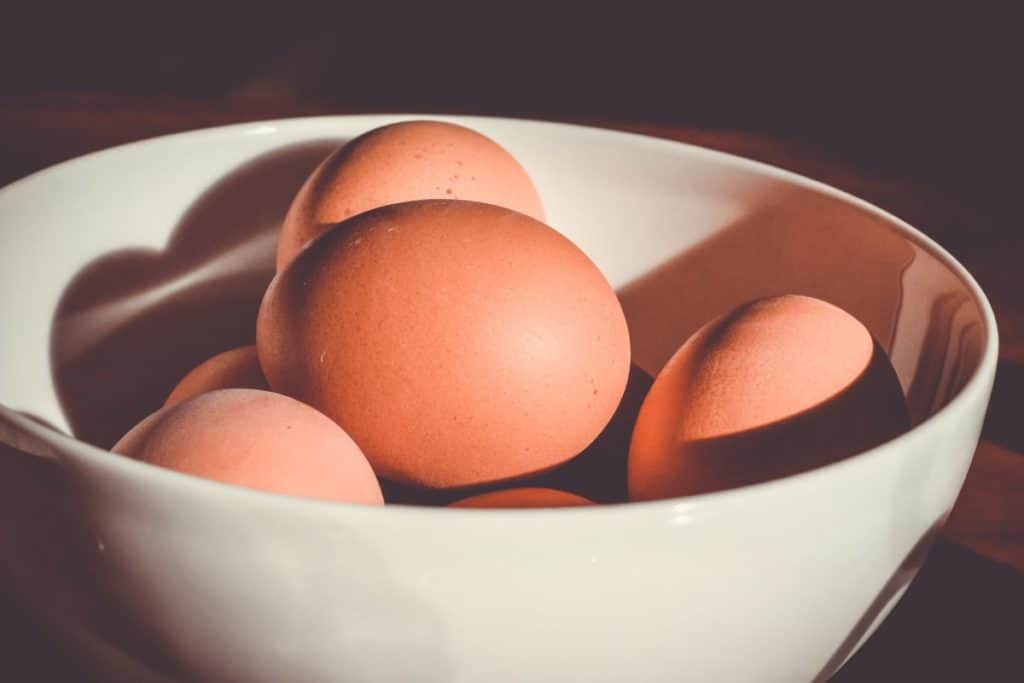
Added Benefits
As I mentioned earlier, chickens produce manure rich in nitrogen. In fact, it is so rich in nitrogen that it can actually burn garden plants if placed near them when the manure is fresh. For that reason, if you use chicken manure in your garden, always let it age for a few months before you add it to your plants. Any garden plant that needs a high nitrogen fertilizer will benefit from chicken manure.
There are times here in Texas when grasshoppers invade in great numbers. During those times, the chickens will feast on them. Chickens eat a lot of insects that would normally damage your lawn or garden. But, chickens can also be destructive to a garden as they will scratch around looking for worms and seeds, and can expose vegetable roots to the air which is not good for them.
They can also eat a lot of weed seeds and in doing so they can be beneficial to an established garden. It’s kind of a two-edged sword. They can be of benefit to a garden, but can sometimes be a pain.
Another added benefit is just watching them. It’s kind of therapeutic to watch the chickens go about their business looking for bugs and such. I saw one blogger compare it to watching “Chicken Television“.
Related Questions:
Do I need a rooster for the hens to lay?
A rooster is not necessary. A hen will probably lay the same amount of eggs without a rooster at she would with a rooster. The only difference is, with no rooster present the eggs will not be fertilized. In other words, if you want to hatch your own chicks, you will need a rooster. Without a rooster, the eggs are not fertile and would never hatch.
Many city ordinances will now allow chickens, but most of them will not allow a rooster. Roosters are very noisy. Very noisy. They start crowing around 4 in the morning and usually crow several times a minute. If you have neighbors that live close by, or if your bedroom window is close by, you will not want a rooster.
How do you keep chickens warm in the winter?
In my part of Texas cold weather is not a problem. It doesn’t get cold enough here to be dangerous for chickens. However, in the northern states, a chicken coop will probably need to be enclosed and perhaps even heated.
Most people who keep chickens in colder climates have fully enclosed chicken coops that are tightly sealed to keep out the cold. The door would need to be opened each morning to let the chickens outside.
My YouTube Channel has over 800 videos dealing with chickens and other small livestock, gardening, fruit production and many other topics relating to homesteading. You can find my YouTube Channel HERE.
